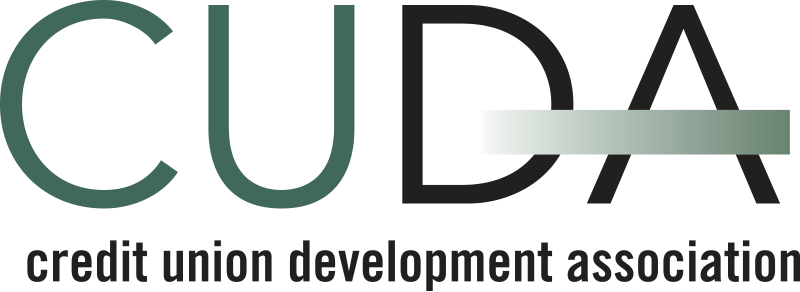Credit Unions secure grant funding support from SEAI for unique end to end survey and finance package
“Credit Unions are best placed to become primary source of finance for nationwide retrofit project”
The Credit Union Development Association [CUDA], which currently runs Ireland’s first end-to-end home retrofit scheme – ProEnergy Homes, has partnered with Retrofit Energy Ireland (REIL) to secure grant funding support from the SEAI and has announced an expansion of the popular scheme, opening it up to all other credit unions.
CUDA report that, such is the demand from participating credit unions, half of the 2021 SEAI €1.5m in grant aid is already allocated, but as part the agreement, it is anticipated that additional funding will be sought in the second quarter.
The Pro Energy Home Scheme was first piloted by CUDA in early 2019 across 20 credit unions and was quickly oversubscribed. The scheme has proven popular as it takes all the “leg-work” away from the homeowner. Homeowners simply fill out an application form with their local participating credit union, after which REIL conducts an assessment on their property and present them with a report.
Kevin Johnson, CEO of CUDA explained why the scheme is so popular with homeowners,
“As the trusted provider of financial services in communities throughout Ireland, credit unions are uniquely positioned to support the delivery of a one-stop-shop model for home energy retrofits.
A national project management firm (REIL) is appointed to oversee all surveys and works, grant funding of up to 35% is available from SEAI for all qualifying works and low-rate financing is made available for the balance of costs through the applicant’s local credit union. To-date public demand for the scheme through participating credit unions has been strong, demonstrating people’s appetite for a ‘one-stop-shop’ model.
Based on the current level of interest from credit union members and the number of credit unions signing up to the scheme, we’ll need to look for additional funding shortly and can envisaging the annual level of grant application running at €6m – €10m.”
According to Josephine Maguire of SEAI,
“The SEAI recognises that access to finance can be a barrier to residential retrofitting so we are pleased to once again support credit unions in delivering the ProEnergy Homes scheme that provides access to finance at competitive rates to their Members. The SEAI has supported the ProEnergy Homes scheme for a number of years and the one-stop-shop model has proven to be a case study for the delivery of residential retrofitting at the ambitious scale targeted in the National Climate Action Plan.”
Commenting on the partnership, Minister of State with responsibility for Financial Services, Credit Unions and Insurance, Sean Fleming TD said “Credit Unions are uniquely positioned to support retrofitting plans in local communities across Ireland. I truly believe that the expansion of the ProEnergy Homes scheme, and similar schemes, will be a boost for local communities and will help the Government achieve its climate action targets.”
The Pro Energy Home Scheme model combines everything an applicant will need under a simple, unified process including an independent home survey report setting out their options, a dedicated project manager to arrange contractors, quality assurance on the works completed, access to low-rate credit union loans to finance the works.
CUDA say the scheme has now been tweaked slightly in response to the pandemic. Home surveys and works will resume as soon as it is safe to do so, but in the interim, a team of expert project managers and surveyors are available for telephone consultations with interested applicants. The ‘free and no obligations’ call-backs can be requested from www.proenergyhomes.ie and applicants will have the opportunity to discuss all their available options and receive professional advice on any technical questions they may have.
The average amount spent is about €14,000 made up of grant, savings and borrowings. The most popular measures undertaken in 2020 were external wall insulation, new glazing. Multi zone boiler controls also proved very popular. The scheme covers retrofits to a range of energy systems, including attic insulation, external wall insulation, the installation of solar panels, and upgrades to windows, among others.
Mr Johnson added, “Presently, SEAI grants will fund up to 35% of the cost of your retrofit. In our experience of running the scheme, the cost to the average household of bringing their home up to the recommended B2 level rating will cost approximately €30,000 – €40,000. So, just accounting for 35% of that cost through grant aid will leave a bill of roughly €26,000 for works. We recommend homeowners to use some saving to help lower the cost of any additional borrowing to cover the remaining bill, or indeed to cover the full cost of works, depending on how much they have saved. For example, take a cost of €40,000 to get a home to a B2 rating – the 35% grant will cover €14,000, which leaves €26,000 for the homeowner to cover. If they have €10,000 saved – this reduces the amount to be financed by a ProEnergy loan to €16,000.”
Mr. Johnson also welcomed the Governments clear commitment to supporting upskilling and job creation nationally as demand grows for retrofitting projects,
“As community organisations, credit unions are anxious to support local tradespeople. CUDA supports the Government’s announcement of four new centres of excellence to train 2,000 people in retrofit skills[1]. Upskilling existing tradespeople nationally will allow for job creation across the country and will support local economies while ensuring competition keeps prices and exchequer funding to a minimum.”
[1] https://www.gov.ie/en/press-release/16253-minister-harris-announces-four-new-retrofitting-centres-of-excellence/
